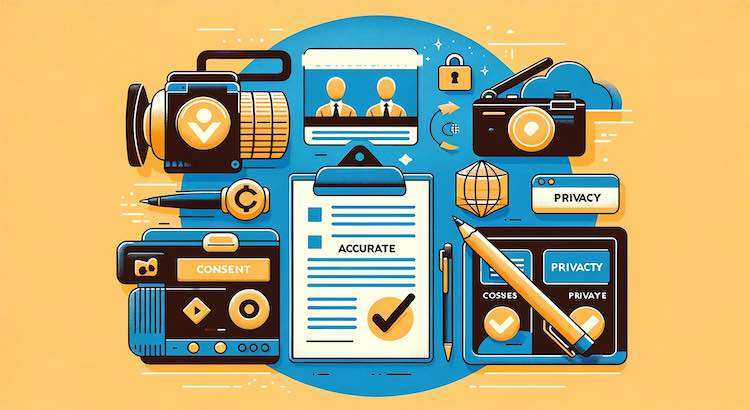Ethical Considerations When Using Transcription Services in Journalism
Consent and Transparency in Transcription
Journalists must always get clear consent before recording and transcribing any conversation. All participants need to know that their words may be recorded, transcribed, and possibly published.
- Inform every source about the planned use of the transcript.
- Request written or verbal permission before starting the transcription process.
- Discuss how the transcript could be used so everyone is on the same page.
A lack of transparency can erode trust and create legal problems (Society of Professional Journalists, 2023). By being upfront, journalists protect both their sources and their own reputations.
Protecting Privacy During Transcription
Transcription often involves sensitive personal data or off-the-record remarks. Protecting this information is essential.
- Use transcription services with strong privacy and security policies.
- Store transcripts securely, with access only for those who need it.
- Follow privacy laws, such as the General Data Protection Regulation (GDPR).
- Remove personally identifiable information unless absolutely necessary.
According to a 2022 Pew Research report, 79% of Americans feel concerned about how their personal data is handled. Journalists must select only services that clearly state how they handle and protect data.
Vet Transcription Service Confidentiality
Confidentiality forms the backbone of journalistic integrity. When choosing a service, investigate their approach:
- Find out if humans or only AI transcribe your files.
- Ask about background checks or confidentiality agreements for human transcribers.
- Ensure the service does not use your files to train AI without your consent.
For peace of mind, review the service’s privacy policies before submitting any sensitive audio.
Ensuring Accuracy and Accountability
Accurate transcripts are crucial. Errors can misrepresent sources and damage trust in reporting.
- Choose services with track records for high accuracy rates; industry leaders report accuracy up to 99% (GoTranscript, 2024).
- Review and proofread every transcript. Compare with the original audio to catch mistakes.
- Look for transcription providers that offer prompt corrections for any errors found.
Misquoting due to transcription errors can lead to retractions or legal action—steps which every newsroom aims to avoid.
For added peace of mind, you can use dedicated transcription proofreading services to double-check your work.
Ethical Challenges with Automated Transcription
Automated transcription, which uses AI, offers speed and reduced costs. However, it brings unique ethical questions.
- AI may not understand all context, leading to errors (MIT Technology Review, 2023).
- Some accents or technical terms can be wrongly transcribed by machines.
- Audio used by AI platforms could be stored for system improvements unless you opt out.
- It's vital to choose services that let you control your data.
Journalists must strike a balance between fast, affordable automated solutions and safeguarding the accuracy and privacy of sensitive stories.
Opt for trusted automated transcription services that clearly explain how your data is processed and offer subscriptions that suit frequent users.
Best Practices for Ethical Transcription in Journalism
- Be clear and honest with all participants about the recording and transcription process.
- Use secure and reputable transcription services with strong privacy protection.
- Carefully review and, if needed, edit all transcripts before publication or broadcast.
- Evaluate both human and AI options to fit the security and accuracy needs of your story.
- Stay updated on legal and ethical guidance from journalistic organizations.
These steps help protect sources, uphold journalistic trust, and meet legal standards. They also help newsrooms avoid costly and damaging mistakes.
GoTranscript: Solutions for Ethical Journalism
If you want to keep your journalism ethical and accurate, GoTranscript can help. We provide secure transcription services by skilled humans or AI. We also offer closed caption services and subtitling services for video content, all with strong privacy and confidentiality standards.
GoTranscript is transparent about its transcription pricing and captioning rates. You can order transcription or order captions online quickly and securely. Our service also covers text translation and audio translation for international reporting.
Conclusion
Journalists must address consent, privacy, accuracy, and automation when choosing transcription services. By sticking closely to ethical guidelines and using a reputable provider like GoTranscript, journalists can maintain trust, legality, and the highest reporting standards in a fast-changing media landscape.



















 Verified Order
Verified Order